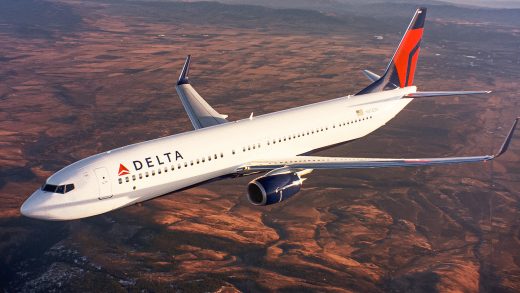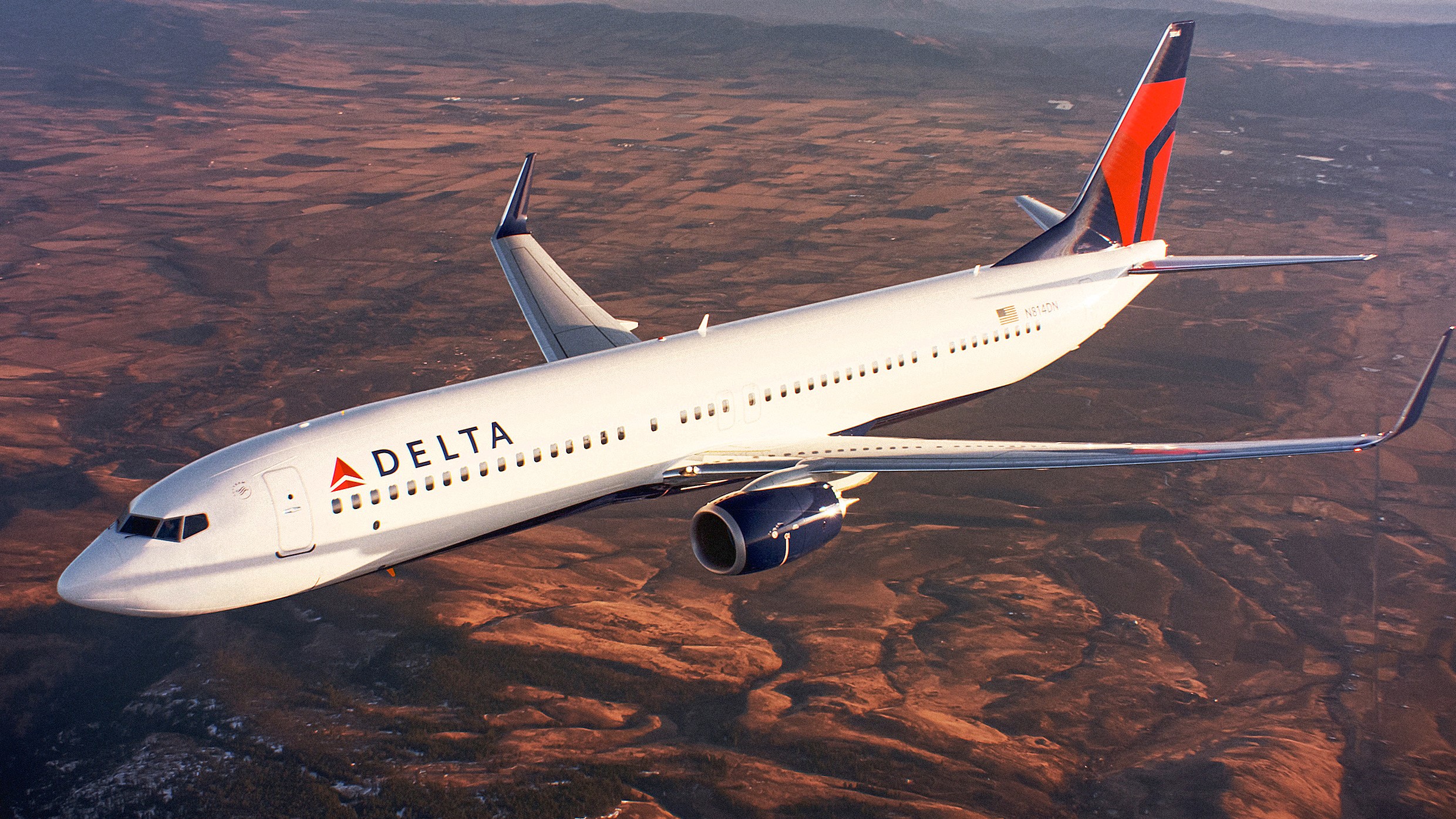Delta’s chief sustainability officer is on a mission to use less fuel
By Talib Visram
As a growing number of people decide to switch careers to work on climate change, we’re running a series of interviews with people in climate-related jobs about their work, from Google’s Kate Brandt and Ikea’s Karen Pflug to PepsiCo’s Jim Andrew.
Between 2% and 3% of the world’s carbon emissions come from aviation. If the industry were a country, it’d be the sixth-largest emitter. What’s more, it’s a “hard-to-abate” sector, meaning it’s innately difficult to decarbonize because the tech that’s necessary to make a real impact is both nascent and expensive.
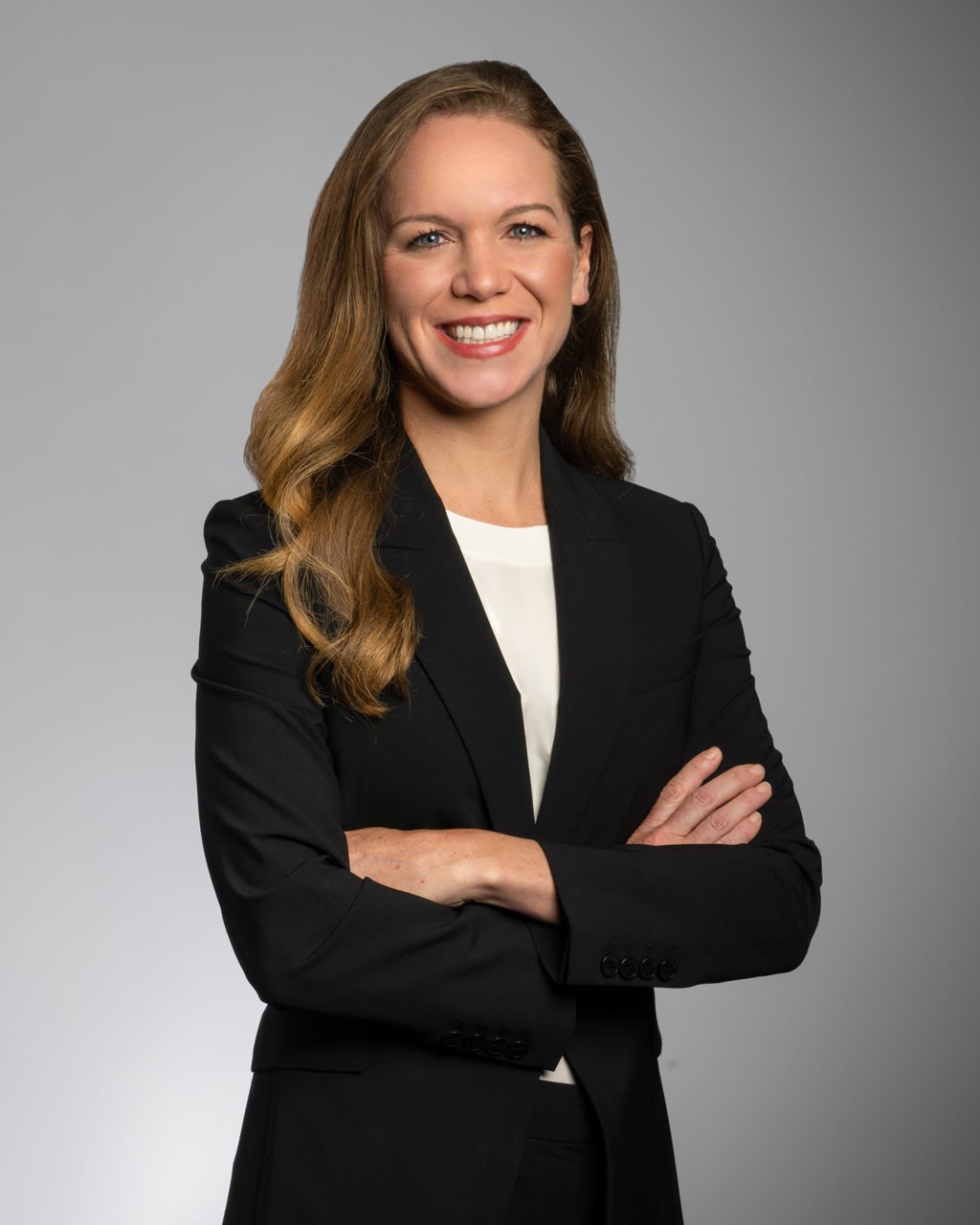
Still, Delta Air Lines has committed to being net-zero by 2050. It aims to achieve that by making its current fleet as efficient as possible while integrating futuristic technologies that could eventually make flying a zero-emission activity.
Amelia DeLuca joined Delta right out of college in 2006, spending most of her career in sales. In August, she became the company’s chief sustainability officer. Here, she discusses the company’s green plans and progress.
Aviation is such a big source of emissions, and with increasing consumer demand for more sustainable options, do you feel the pressure of this role?
I do feel the pressure. But I have to say—as someone who loves this industry, and as part of that changing generation who is committed to working toward combating climate change—it also feels a little bit like a dream job. Every day, you have the opportunity to make an impact. And unlike other industries, there’s a large group of stakeholders rooting us on because they see the value of what this industry does. Not just from within the industry, but [from] our investors to our corporate customers to our consumers. That’s a nice position to be in [for] a chief sustainability officer.
You came from a sales background. Why did you transition into sustainability?
Sustainability has always played a role in my personal and my family life, from the way my husband and I raise our children to how we’re making decisions in our household. At the same time, I really love this industry. This is the only thing I’ve ever done, since right after college.
When sustainability came to me, I was hooked from day one. [But] I pretty naively didn’t fully understand the extent of the challenge of this job. At the time, I was still thinking about things like single-use plastics, and that’s certainly part of what we’re trying to do. [But] it really all comes down to the singular problem of jet fuel, which is 90% of our impact on the planet.
How do you balance building ambitious sustainability strategies with setting realistic goals?
It’s a hard thing to balance. I’m really happy about where Delta’s ambitions are right now. When you look at day to day, I would say there are three areas where we can show that progress has been made. [First], there’s a lot that we can do from the sustainable travel experience that’s been underway: introducing artisan-made amenity kits, recycled bedding, reusable and biodegradable “serviceware,” premium canned wine. We’re just improving upon not only our single-use plastic reductions, but also our waste reduction.
[Second], the Carbon Council is my favorite. [It] launched at the beginning of 2022 with a mission to save 10 million gallons of jet fuel every year. Cumulative, that would be 1.1 billion gallons of jet fuel between 2019 [and] 2035. The way we do that is just attack all the ways that we’re using extra jet fuel. For example, the routings that we take when we land the airplane, or managing the weight that goes on board through our serviceware, or through our potable water usage. It’s making sure when an aircraft is parked at the gate, there’s an efficient way to keep that aircraft cool under power that doesn’t use jet fuel at all.
The [third] is sustainable aviation fuel (SAF). The single biggest lever that we have to march toward net-zero is sustainable aviation fuel.
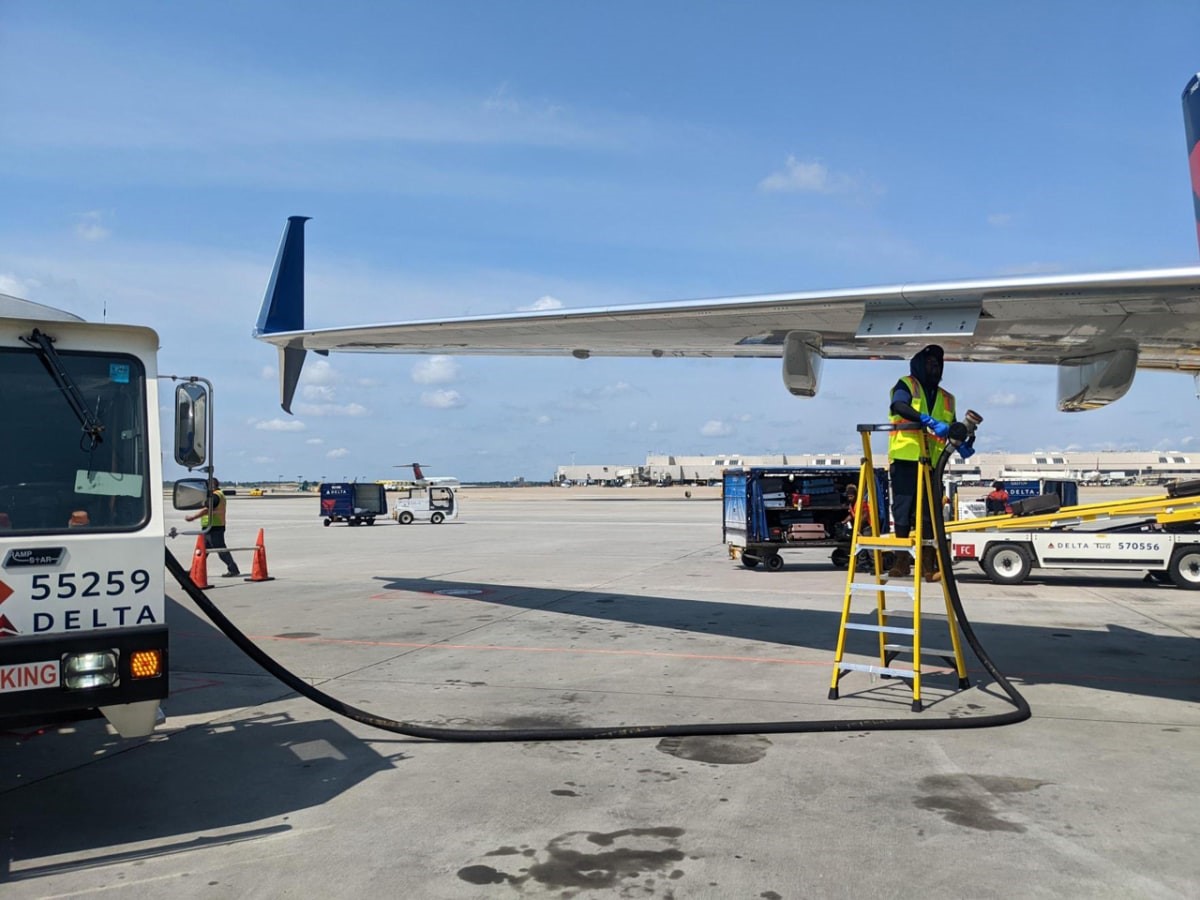
Why is SAF the most important way to impact sustainability?
We’re doing everything that we can to reduce jet fuel usage, which obviously impacts our carbon footprint today, [and] also helps manage the SAF that’s needed in the future. But the fleet that exists today can’t get you to net-zero; even the revolutionary fleet that’s coming—electric, hydrogen, you name it—none of that will be fully scaled or able to fully cover our global network by 2050.
So, the only solution that can really step in is sustainable aviation fuel. It is just staggering when you think about it. Last year, we used 1.6 million gallons of sustainable aviation fuel; this year we were under contract for above 10 million, but due to delivery shortages will probably come in around 5. Our goal is 400 million by 2030—and that’s only 10% of our jet fuel. Not only is it imperative that it scales to get to net-zero, but it’s also probably the most important thing this industry is going to collectively do over the next 30 to 40 years.
SAF is expensive. Do you foresee price increases for customers at a time when they’re already concerned about the escalating cost of air travel?
We would certainly start with governments and businesses before we get to the end consumer. We have the IRA [Inflation Reduction Act] package, so there’s federal incentives now for SAF. We’ve seen many states that already have incentives, and many others that will be introducing it next year. So we’ve got a good start in the U.S. on the government side.
Then you look at businesses. It’s not just the airline industry, it’s actually all the corporations that travel by air. They’re all very active in this conversation. We’ve had over 50 corporate and cargo customers sign up to purchase sustainable aviation fuel through us because they know that they need it for their own stakeholders, for their own climate goals. We’re going to continue to max out how those corporations are supporting SAF, and Delta is putting these forward contracts together.
You’ve set up a hub in Minnesota to strategize scaling SAF and partnering with other companies, nonprofits, and academic institutions. How important is collaboration to reach your goals?
One of the most important things is that we do not create a situation [where] there are winners and losers in the race to decarbonize aviation. It’s about the collective industry succeeding together. And that’s not just the airlines. It won’t scale if every person in that value chain isn’t set up for success. So, while the industry itself is incredibly competitive—and I’ve come out of 15, 16 years in areas where you never talked to your airline counterparts—now I spend the majority of my time talking to my airline counterparts, because it’s about trying to solve this massive problem. We can’t do it alone.
That said, if you provide a better sustainable experience than your competitors, that surely gives you an upper hand. How do you balance those two things?
It is about working together where it makes sense. That’s why you see us work a lot together when it comes to the policy perspective, or advocating for the right frameworks that are going to help scale SAF. The second part of that is we don’t also have to duplicate efforts. So we really cheer each other on when someone in the industry makes an investment or starts a new coalition, even if we’re not all part of it. Everyone’s approaching this in slightly different ways, and we applaud that, because we shouldn’t all be doing the same thing or we’re going to create stagnant innovation.
Are there winners and losers from a consumer perspective, when it comes to sustainability? Yes, in the sense of brand differentiation from being environmentally responsible, so we certainly will lean into that. But never at the expense of causing the general consumer base to lose trust in the industry, or in Delta as a brand.
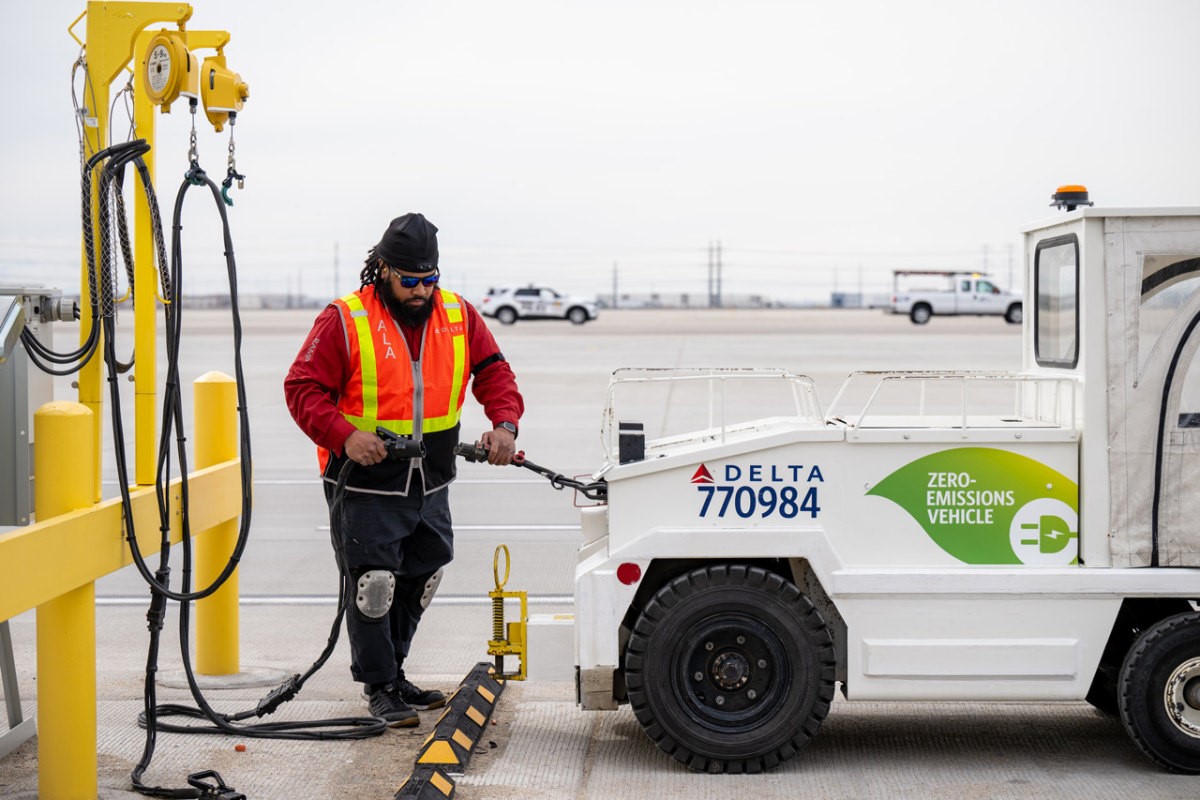
How realistic are more experimental ideas like hydrogen-powered jets?
When it comes to revolutionary fleet [how Delta describes its strategy for the next century of flight], it’s an acknowledgment that right now, there are linear improvements with every new aircraft that we take—but we need a major step-change function to start to bring on zero-emissions aircraft. We have a relationship with Airbus ZEROe, which is a hydrogen-powered aircraft. We have a relationship with the Joby eVTOL product, which is a foray into the electric. We have a relationship with Boeing, looking at a new airframe. We’re approaching the new revolutionary fleet by trying to not only look at the power that’s used, but also the airframe.
We’re excited about the potential of hydrogen. Hydrogen can come into play with the ZEROe product [via] a hydrogen-powered aircraft, or hydrogen will also play a role in synthetic fuels. Our thinking with this relationship was, we want to understand more about hydrogen potential. It won’t be able to replace our fleet. It’ll come onto the market geared toward more of the regional flying that we have today. But we can’t lose sight of SAF, which we need for our mainline and our wide-body aircraft.
If things move too slowly, could the new generation of sustainability-minded passengers simply choose not to fly to protect the environment? Is that something you’re seeing?
We are not. What we’re seeing are consumers increasingly aware of sustainability and looking for sustainable options in the brands that they choose. We’ve not yet seen a large shift toward inter-modality, partially just because inter-modality doesn’t really exist here in the U.S. very well. But we’re cognizant of the fact that for leading brands to continue to be leading brands, sustainability has to be intermixed with some of their other brand pillars, which for us would be things like safety, operational excellence, and being a premium brand. Sustainability already does and will continue to coexist within our brand framework.
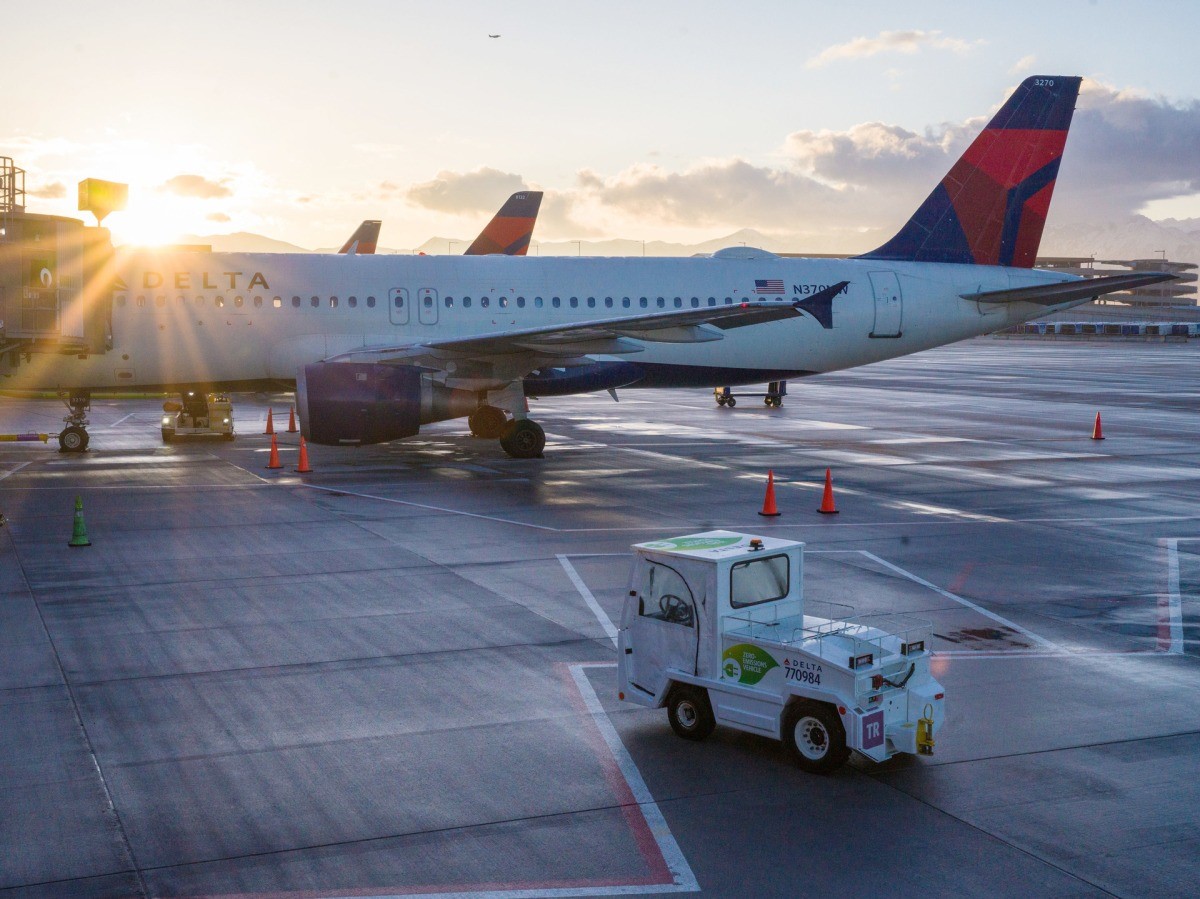
You mentioned transparency in the form of ESG disclosures. One thing I hear about a lot from CSOs is the burden of disclosures, in terms of workload and timing. What’s your view?
I hear that, too. We believe we’re a trusted company, so disclosure helps with continuing to have that trust. We’ve already built out a really good track record on the ESG side. We listen to our investors about every six months; we started these ESG listening tours a couple years ago, and it’s been super helpful for us to understand what questions people have, and what’s our answer, and then we build out our disclosures around that.
The other thing that gives us a little bit of an advantage: Our largest impact on the planet is jet fuel, and that is also one of our largest cost drivers. Our reporting of jet fuel usage is not new; it’s a thing we’ve been doing for years [as] part of our financial reporting. To translate that into ESG reporting is not that difficult for us versus other companies who have these large Scope 3 portfolios that take a ton of time and effort. So, I can understand why they would feel that way. But from our perspective, it has not become that burden yet. If anything, it’s welcome that we want to be able to answer the questions of our top investors.
Correction: An earlier version of this story incorrectly stated that DeLuca had also previously worked at Aeromexico.
(16)

